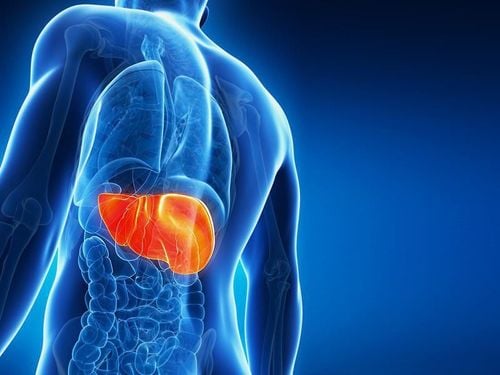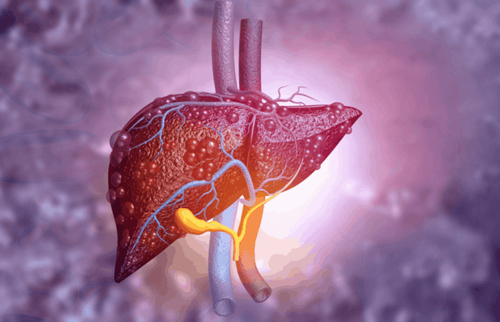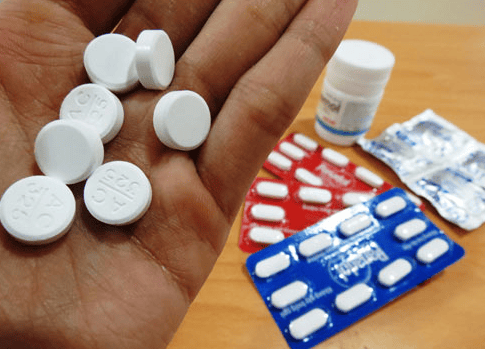This is an automatically translated article.
This article is expertly consulted by MSc Vu Tan Phuc - Gastroenterologist - Department of Medical Examination & Internal Medicine - Vinmec Phu Quoc International General Hospital. The doctor has nearly 10 years of experience in the field of gastroenterology with strengths in diagnostic and therapeutic Gastrointestinal Endoscopy.HDV is the virus that causes hepatitis D. The most common symptoms in hepatitis D patients are jaundice, fatigue, nausea, etc. When experiencing any symptoms of hepatitis D, the patient also needs See your doctor for treatment to avoid dangerous complications.
1. What is Hepatitis D?
Hepatitis D is a liver disease caused by the hepatitis D virus (HDV). HDV is known as a satellite virus, as it can only infect people infected with the hepatitis B virus (HBV). Hepatitis D can be acute or chronic.Hepatitis D can be acquired concurrently with hepatitis B as a co-infection or as a superinfection in people already infected with chronic hepatitis B. Hepatitis D is most common in Eastern Europe, Southern Europe, and the Mediterranean region. Mediterranean Sea, Middle East, West and Central Africa, East Asia and the Amazon Basin in South America.
There is a difference between HBV/HDV coinfection and HDV superinfection: HBV/HDV infection occurs when a person is infected with both HBV and HDV simultaneously, while HDV infection occurs when a person is already chronically infected with HBV HDV susceptibility. Although acute HBV/HDV infection can be treated, HDV superinfection can lead to cirrhosis and liver failure.
There are 8 different HDV liver types that can be found globally. They all share the same transmission line and risk group. HDV genotype 1 is found mainly in North America, Europe, the Middle East and North Africa. HDV genotypes 2 and 4 can be found in East Asia; genotype 3 is found only in the Amazon basin in South America and genotypes 5, 6, 7, and 8 are found in West and Central Africa.

2. What are the symptoms of hepatitis D?
Hepatitis D does not always cause symptoms. Hepatitis D can be acute or chronic. Acute hepatitis D comes on suddenly and often causes more severe symptoms. If the infection persists for six months or longer, chronic hepatitis D can result. The virus can stay in the body for several months before symptoms occur. As chronic hepatitis D progresses, the potential for complications increases. Many patients with late-stage hepatitis D have cirrhosis, severe scarring of the liver.When symptoms occur, the person may experience the following conditions:
Jaundice and yellow eyes. Joint pain Abdominal pain Nausea and vomiting Loss of appetite Dark urine Fatigue The symptoms of hepatitis B and hepatitis D are similar, so it can be difficult to determine which disease is causing your symptoms. In some cases, hepatitis D can make hepatitis B symptoms worse. It can also cause symptoms in people with hepatitis B.
These signs and symptoms usually appear 3 weeks to 7 weeks after the initial infection. People who are coinfected with HBV/HDV have different symptoms from those with HDV superinfection. Acute hepatitis occurs in people with HBV/HDV infection. Thus, their symptoms may follow a two-phase course. Symptoms of HBV/HDV coinfection can range from mild to severe (fulminant hepatitis), but for most people, coinfection is self-limiting: less than 5% of people infected go on to have a chronic infection count.
Hepatitis D is caused by the hepatitis HDV virus. This infection is easily spread, can be through direct contact with body fluids of an infected person such as urine, vaginal fluid, semen, blood, childbirth,...

3. How is hepatitis D diagnosed?
It is important to see your doctor when you develop symptoms of hepatitis D. To make an accurate diagnosis, your doctor will perform a blood test to detect antibodies to hepatitis D in your blood. If antibodies are found, the patient has been exposed to the virus.Your doctor will also check your liver function if they suspect liver damage.
The only known way to prevent hepatitis D is to avoid getting hepatitis B. You can take the following precautions to reduce your risk of getting hepatitis B:
Get the hepatitis B vaccine : All children should be vaccinated against hepatitis B. Adults at high risk of infection who regularly use intravenous drugs should also be vaccinated. The vaccination is usually given as three shots over a six-month period. Safe sex: by using condoms with all sexual partners. You should only have sex without using contraception, when you are sure your partner does not have hepatitis or any other sexually transmitted disease. Avoid or stop using injectable stimulants such as heroin or cocaine. Do not share needles with others. Be cautious about getting tattoos and piercings. Choose a reputable shop if you want to get a tattoo or piercing to avoid infection.

In order to meet the needs of examination and treatment of Liver - Bile - Pancreatic diseases, Vinmec International General Hospital has launched standard liver - bile screening packages, comprehensive liver - bile screening packages and advanced liver - biliary screening package to help evaluate hepatobiliary function through laboratory tests and subclinical; the risk of affecting the liver and early screening for hepatobiliary cancer.
To register for examination and treatment at Vinmec International General Hospital, please make an appointment on the website for service.
Source: healthline.com & cdc.gov
Please dial HOTLINE for more information or register for an appointment HERE. Download MyVinmec app to make appointments faster and to manage your bookings easily.














